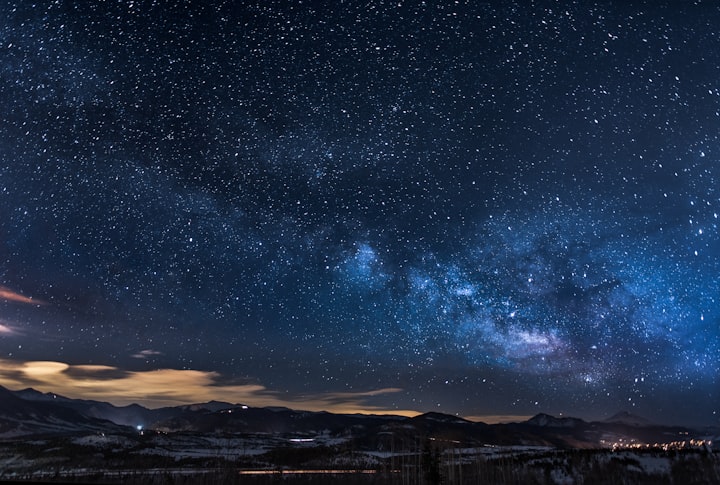Why You Can No Longer Appreciate The Stars
Where have the stars of the skies gone to and what is light pollution?

Let's create a scenario. One summer night, you want to chill and read under the cover of the night's sky. You gather up your things and go outside. You are expecting to look up and see the stars but no. There is none. Not even little specs of stars right above. There is just blackness, nothing to gaze to. At least the moon is still there right?
Have you ever wondered why you could see tons of stars all around when you were a child? For me, I remember that I always used to look at the sky every now and then and it was a wonderful experience.
I would pass hours with my family just appreciating these marvelous diamonds. But what has happened to the stars of today? Why are there fewer? Or in the scenario, none?
Light pollution is why. The stars have always been there, but it is us that can no longer see them. One-third of humanity can no longer see the Milky Way! Imagine the kids who will no longer have the same experience as I did.
There are many causes of this phenomenon such as having the lights turned on inside buildings that are not fully used throughout the night, spotlights, street lamps, neon signs, billboards, car headlights, and so much more. This is why we cannot see the stars clearly enough. Our lights affect the visibility of the stars. And the majority have no use when left turned on! Why have a building with lighted floors if there is no one there?

Now let’s talk about another consequence of light pollution. Imagine that from your home, you are not able to appreciate the stars. So one day, you decide to go star-gazing. You plan to go to an area surrounding your city because it's more rural, but it also occurs there! This may occur because a large amount of light pollution in your home city can extend to the neighboring areas.
Light pollution also affects the surrounding land and as the world is feeding onto capitalism, globalization, and technology, there will be fewer sites with proper dark skies.
Of course, these technological advances have made wonders but will the glare be too much to return from? Last night, I was trying to look at some stars but there were only TWO! I live in an urban area where you can see factories if you have a ten-minute ride, but at my exact location, there is minimum lighting. Here is a clear example of the extent of light pollution.
And let’s just put this into perspective. Do we really need neon factory signs to be lit up every night? Do we really need street lamps that not only illuminate the ground but also directly to the sky?
If you must use certain lights, I believe that new technologies could help. Sensors could be a key preventer of light pollution as they detect ONLY certain movements, and then they will properly light up.

If you are still trying to find a few stars and can’t, now you know why. This is not only the case for you but it happens all around the world. Many countries are beginning to try to regain these dark skies and hopefully, it will also apply to where you live.
You also know now how to try to prevent light pollution. You can use light wisely, and try to share this information. Let’s try to go back to those star-gazing nights. Everyone at every age should be able to do this wonderful activity.
This article was written thanks to the following websites:
https://www.vox.com/2016/6/10/11905390/light-pollution-night-sky
https://www.forbes.com/sites/jillianscudder/2016/08/07/astroquizzical-light-pollution/?sh=746aa2b81c0d
About the Creator
Sharing Randomly
Just a normal woman with lots to share. I write about art, mental health, entrepreneurship, and lots more.
Support me: https://ko-fi.com/sharingrandomly






Comments
There are no comments for this story
Be the first to respond and start the conversation.